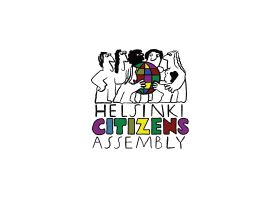Helsinki Citizens’ Assembly-Vanadzor regularly monitors mass media, collects and analyzes publications on drug-users, illicit circulation of drugs and other publications on drugs.
This report presents results of analysis of publications dated 2020-2022. During 2020-2022, 5064 publications on drug users, illicit circulation of drugs and drugs in general were collected and analyzed.
4399 of those publications are of criminal procedural nature, 665 are of general informative nature. Coverage of drug-related information is mainly done by law enforcement and therefore they are of legal/criminal procedural nature. At the same time, there are almost no publications about the priority of addiction treatment, rehabilitation programs, the importance of refraining from drugs and other healthcare and social-rehabilitation publications. Moreover, lack of such publications on those topics, as well as the contents of such rare publications give us grounds to conclude that for years on end, the state has not envisaged social-rehabilitation programs for persons addicted to drugs.
13 of publications of criminal procedural nature concerned crimes committed by drug users. Such publications can essentially impact formation of a negative attitude towards drug users. In this context, increase in the number of such publications in 2022 is worrisome.
Most publications (3984) on illicit circulation of drugs reference names of officials and citizens, while there are only 365 publications without any reference. This indicates that in the context of disclosure drugs and prevention of their circulation, publications mainly focus on punishment of drug users.
No discourse is being formed to break the stigma against drug users, while separate publications on drugs and a significant part of the total number of publications are aimed at forming a negative attitude towards drug users.
108 out of 5064 publications contained stigmatizing words. 21 other publications (not concerning drugs) were collected where stigmatizing words were used as insults.
It should be noted that 18 out of 108 publications with stigmatizing vocabulary were disseminated through official pages of state authorities (16 publications by RA Police, 1 publication by RA Ministry of Health, 1 publication by RA Ministry of Labor and Social Affairs), 47 more publications were collected from other agencies.
55 out of 5064 publications collected throughout 2020-2022 contain personal data which can be used to identify the relevant persons.These publications are actually manifestations of violation of the right to personal data protection.
12 out of 55 publications containing personal data were taken from the RA Investigative Committee, 38 were taken from mass media.
Thus, we can record that it is necessary to review the policy implemented in the drug sphere in order to eliminate issues recorded and include change of discourse of state authorities and mass media, as well as organization of awareness campaigns forming a negative attitude towards drug use.
Click to read the full report.

